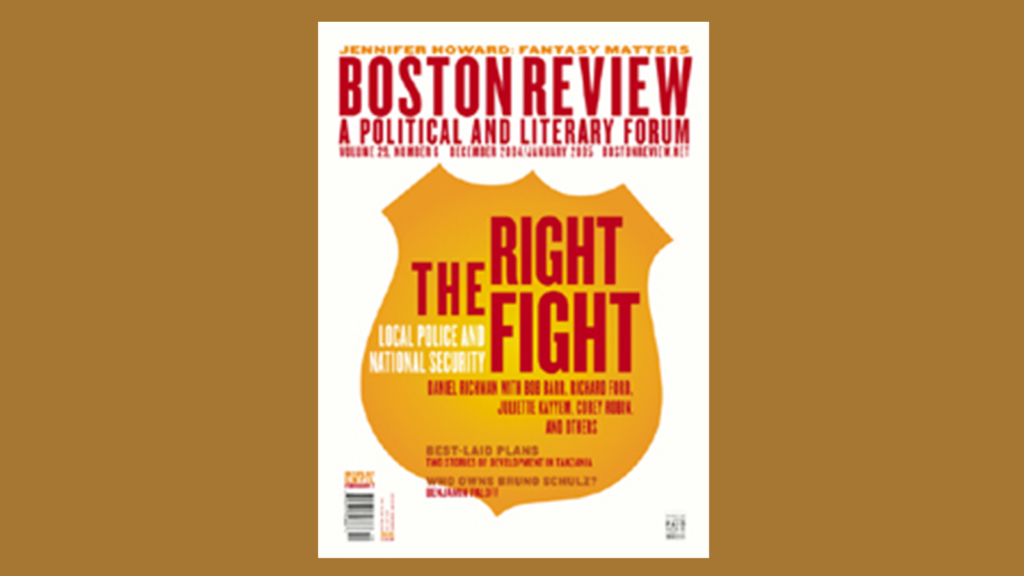Forum
The Right Fight
DANIEL RICHMAN
WITH RESPONSES BY DAVID A. HARRIS, BOB BARR, EDWARD RUBIN, WILLIAM J. STUNTZ, JULIETTE KAYYEM, DAVID A. SKLANSKY, KEVIN R. JOHNSON, ELIZABETH GLAZER, RICHARD T. FORD, AND COREY ROBIN. REPLY FROM DANIEL RICHMAN.
Essays
Who Owns Bruno Schulz?
Poland stumbles over its Jewish past
Benjamin Paloff
Freedom Railway
The unexpected success of a Cold War development project
Jamie Monson
Best Intentions
The story of Tanzania’s people’s park
Christine J. Walley
What Went Wrong
Anonymous’s Imperial Hubris and The 9/11 Commission Report
Rajan Menon
Rich World, Poor World
Francis Fukuyama’s State-Building
Mick Moore
Lost Opportunities
Dennis Ross’s The Missing Peace
Jeremy Pressman
Fiction
Expecting
Emily Fridlund
On Film
See No Evil
Zhang Yimou’s Hero
Alan A. Stone
On Poetry
Master of the Same New Things
Richard Howard’s Inner Voices and Paper Trail
James Longenbach
Microreviews
Poems
Poet’s Sampler
Introduced by Caroline Knox
Jibade-Khalil Huffman
Facilitas
Garth Greenwell
Nativity
L.S. Klatt
The God that Took the Place of Pleasure
Judith Hall
Pilgrim Sonnet
Andrew Grace
Pilgrim Sonnet Redux
Andrew Grace
Song Disowned
Bruce Smith
Union Square
Lori Shine


